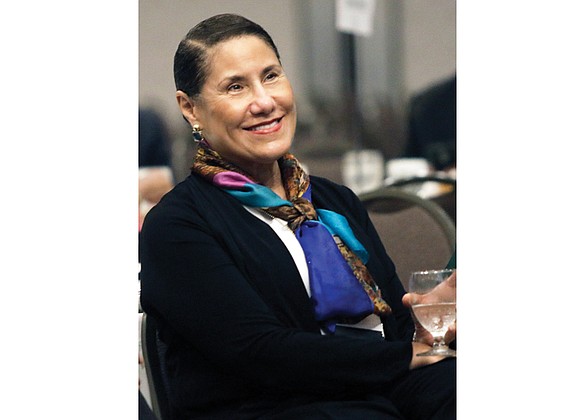Ta-Nehisi Coates: Election shows ‘centrality of racism’ in America
Jeremy M. Lazarus | 10/13/2016, 6:15 p.m.
From his post as a national correspondent for The Atlantic magazine, Ta-Nehisi P. Coates casts a jaundiced eye at the current presidential race.
The author of two highly regarded memoirs and the creative writer behind Marvel Comic’s “Black Panther,” Mr. Coates sees Republican candidate Donald Trump as exposing “the centrality of racism that runs through the spine of this country.”
Mr. Coates said Mr. Trump’s campaign has shown that a major American political party is wedded to promoting “cultural supremacy” for one group rather than embracing diversity and inclusion.
Mr. Coates offered his views at a luncheon Saturday during the 101st Annual Meeting and Conference of the Association for the Study of African American Life and History held at a Downtown hotel.
Mr. Coates, who gained national attention for his 2014 Atlantic article, “The Case for Reparations” for African-Americans, spoke about the election as part of an interview conducted by Dr. Clarence Lang of the University of Kansas before an audience of about 300 people.
Among other topics, Mr. Coates spoke about his work on the comic “Black Panther: A Nation Under Our Feet,” which features the absolute monarch of a fictitious African nation.
Asked if he was seeking to make the comic inspirational for readers, he said that was not a role he considered.
He said he focused on what it is like to live under absolute rule and the impact and effects that people would feel.
Mr. Coates was among the featured speakers of the four-day conference with the theme, “Hallowed Grounds: Sites of African-American Memories.”
Based in Chicago, ASALH’s official mission is “to promote, research, preserve, interpret and disseminate information about African-American life, history and culture to the global community.”
That purpose was on display in the wide-ranging program that included the presentation of scholarly papers and numerous panel discussions on topics ranging from “Black Internationalism” to “Making a Place for Early 20th Century African-American Women” and “Student Struggles Across the 20th Century.”
An estimated 1,200 people attended the conference, organizers said, or nearly half of the group’s 3,000 members.
ASALH was launched in 1915 by Virginia-born historian Carter G. Woodson creator of Black History Week, now Black History Month, to call attention to African-American contributions to the nation and the world.






